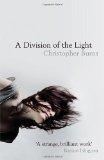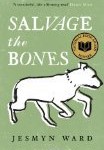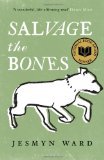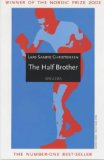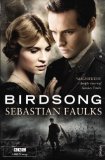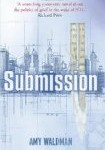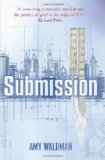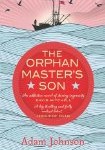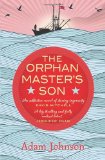
Five words from the blurb: North Korea, kidnapper, spy, glory, love
After reading the outstanding Nothing to Envy I found myself craving more stories from North Korea. The Orphan Master’s Son fitted the bill perfectly and so I dived straight in.
The story revolves around Jun Do, the son of an orphanage manager, who joins the military. Initially he is combat trained in the tunnels of the de-militarised zone between North and South Korea, but he is then sent on secret missions to kidnap Japanese citizens from the beaches of Japan.
At first, Jun Do had been thinking, Grab her here, pressure her there, but then a sick feeling rose in him. As the two rolled, Jun Do could see that she had wet herself, and the rawness of it, the brutality of what was happening, was newly clear to him.
These first hundred pages were fantastic. The atmosphere and emotions were perfectly captured in tense, vivid scenes that highlighted the horrible situations that North Koreans have to endure.
Unfortunately everything went downhill after this. Jun Do’s transfer to a fishing boat retained the vivid descriptions, but I felt the writing became overly masculine, veering towards that of a spy thriller. The ending of this section pushed the boundaries of believability and introduced an American senator. The American scenes jarred with the rest of the book and I found them very irritating. The continual comparisons between life in America and life in North Korea were unnecessary and I found them patronising.
Things deteriorated further in the second half. This section focused on Commander Ga, a military official, and an actress called Sun Moon. Their lives in Pyongyang were obviously satirical, but I’m afraid I didn’t find it amusing. The wonderful realism of the first few chapters were a distant memory as I read stories about Korean citizens that were either obviously untrue, or worse, were acting like Americans dropped in a difficult situation rather than people who had grown up with communism their entire lives.
The more I read, the more annoyed I became. I’m sure other readers will appreciate this section, but I’m not a fan of satire and the way their lives were parodied made me sad. It felt as though the reader was supposed to laugh at various aspects of their lives and I don’t think this is right.
I’m sure this book will generate a lot of attention, especially in America, but I’m not sure this is a good thing. I don’t think people have a strong enough knowledge of North Korea to know which parts are true and which are fabricated. I wish that this book had been limited to its first half; that way people would just read a fantastic book with a slightly disappointing ending, instead of an overly long book with numerous unrealistic impressions of this mysterious society.
First 100 pages: 
Remaining 300 pages: 
Overall: 
.
The thoughts of other bloggers:
The book is a remarkable achievement and perhaps give more idea about daily life in North Korea than anything else on the market. A Common Reader
With accurate descriptive language, Johnson describes unsettling scenes throughout the entire novel in a way that actually makes you feel and taste the fear the characters encounter. Where Pen Meets Paper
I had an incredibly difficult time getting through this one. Take Me Away
 or more, but unfortunately you’ll have to wait until sometime in May for my reviews.
or more, but unfortunately you’ll have to wait until sometime in May for my reviews.






